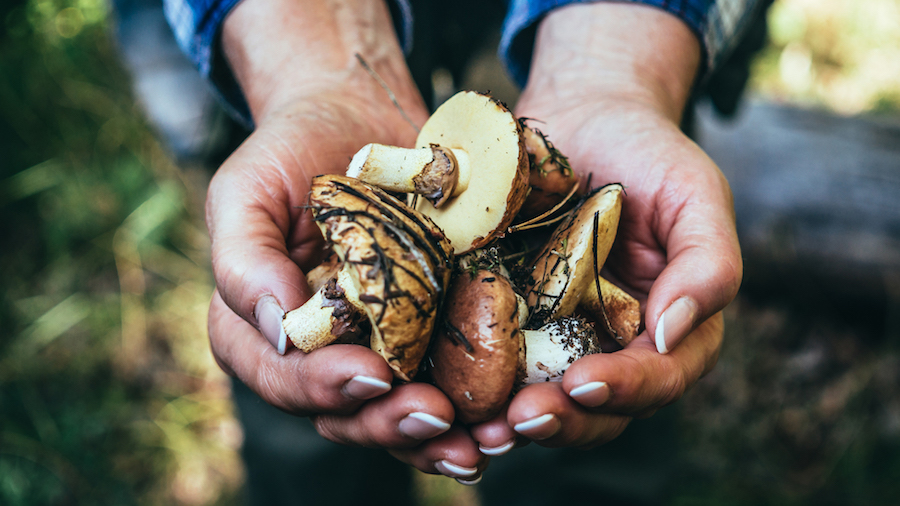Scientists have found mushrooms have a surprising health benefit
Apparently, they are loaded with antioxidants that could help fight ageing.
Mushrooms contain high levels of health-boosting compounds that could help fight ageing, a new study suggests.
A team of scientists found 13 species of edible fungi to contain generous amounts of antioxidants – substances that remove potentially damaging agents such as free radicals present in the body.
The theory is that free radicals are unstable molecules that react with other substances in the body to damage cells, proteins and even DNA – or create abnormal ones.
These highly reactive atoms travel through the body seeking to pair up with other electrons, causing the body to suffer with oxidative stress.

Mushrooms are said to contain antioxidants ergothioneine and glutathione
According to study author Robert Beelman, replenishing the body with antioxidants helps protect against this stress.
He and his team found mushrooms to contain two antioxidants – ergothioneine and glutathione.
Beelman, director of the Penn State Centre for Plant and Mushroom Products for Health, said: “What we found is that, without a doubt, mushrooms are the highest dietary source of these two antioxidants taken together, and that some types are really packed with both of them.
“There’s a theory – the free radical theory of ageing – that’s been around for a long time that says when we oxidise our food to produce energy there’s a number of free radicals that are produced that are side products of that action and many of these are quite toxic.

White button were said to contain the lowest amount of antioxidants
“The body has mechanisms to control most of them, including ergothioneine and glutathione, but eventually enough accrue to cause damage, which has been associated with many of the diseases of ageing, like cancer, coronary heart disease and Alzheimer’s.”
Porcini was found to contain the highest levels of antioxidants, while white button mushrooms had the lowest amount.
Beelman said: “We found that the porcini has the highest, by far, of any we tested.
“This species is really popular in Italy where searching for it has become a national pastime.”
Cooking mushrooms does not seem to significantly affect the compounds, Beelman said.

Porcini mushrooms came on top of the researchers’ list
He added that future research should look at any role ergothioneine and glutathione might play in potentially decreasing the likelihood of neurodegenerative diseases – such as Parkinson’s and Alzheimer’s.
He said: “It’s preliminary, but you can see that countries that have more ergothioneine in their diets, countries like France and Italy, also have lower incidents of neurodegenerative diseases, while people in countries like the United States, which has low amounts of ergothioneine in the diet, have a higher probability of diseases like Parkinson’s Disease and Alzheimer’s.
“Now, whether that’s just a correlation or causative, we don’t know. But, it’s something to look into, especially because the difference between the countries with low rates of neurodegenerative diseases is about three milligrams per day, which is about five button mushrooms each day.”
The research was recently published in the journal Food Chemistry.
The Press Association
Latest posts by The Press Association (see all)
- 5 new books to read this week - November 23, 2024
- 3 easy Mary Berry recipes to make this season - November 22, 2024
- In Pictures: Party stalwart kept New Labour in touch with traditional supporters - November 21, 2024
- 6 easy indoor exercises to try this winter – and why they are good for you - November 19, 2024
- Martin Clunes: I can’t afford to retire – I’ve got too many horses - November 19, 2024





















